News
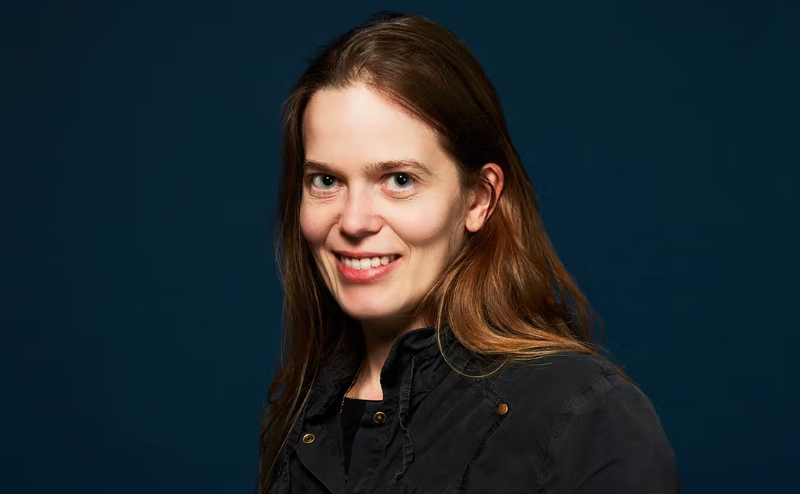
Chloé Vigneau, researcher and co-founder of Copotato
A graduate of the Mastère Spécialisé Designer d'expérience interactive et ludique -Cnam-Enjmin / GOBELINS Paris (IDE) in 2018, Chloé Vigneau co-founded Copotato, an interactive experience production company with Antoine Boulinguez, also an alumnus.At the same time, she wrote a doctoral thesis on school learning through video games, which she will defend on July 3, 2024.
Could you summarize your career path since graduating from your Mastère Spécialisé Interactive Digital Expériences in 2018?
As soon as I finished my master's degree, I was hired on a permanent basis by Serious Factory, the company where I had done my work-study. I stayed there for a year and a half, after which I moved to another serious game company.
I came out of the IDE course with the idea of working in educational game design , and I wanted to have a second experience in a company in the sector.
I very quickly got the idea of setting up my own company, and in 2020 I launched the venture with my partner Antoine Boulinguez, who was in the same class as me at school. We filed Copotato 's articles of association in June 2020, right in the middle of covid, without any certainty about the development of the business.
At the same time, I've always been attracted to research. My professional dissertation had gone very well and I wanted to do a thesis. I spoke to Stéphanie Mader and Catherine Rolland, who were both teaching at the CNAM at the time (Stéphanie is now in charge of the specialized IDE master's program at the CNAM).
They were very supportive and helped me to make this project a reality. I was offered a PhD contract at the "Science and Video Games" chair created by Ubisoft and the Ecole Polythchnique, with Catherine Rolland as project manager.
I was also able to enroll in the Cnam laboratory to which Stéphanie Mader belongs, to work on my thesis. This enabled me to start my thesis in 2021, under the supervision ofAxel Buendia, the director of Cnam-Enjmin.
In 2021, the company got off to a good start, so I divided my time, focusing more on R&D and leaving the rest to my partner.
I'll be defending my thesis on July 3, 2024. It's a great adventure to have managed my thesis and the company at the same time!
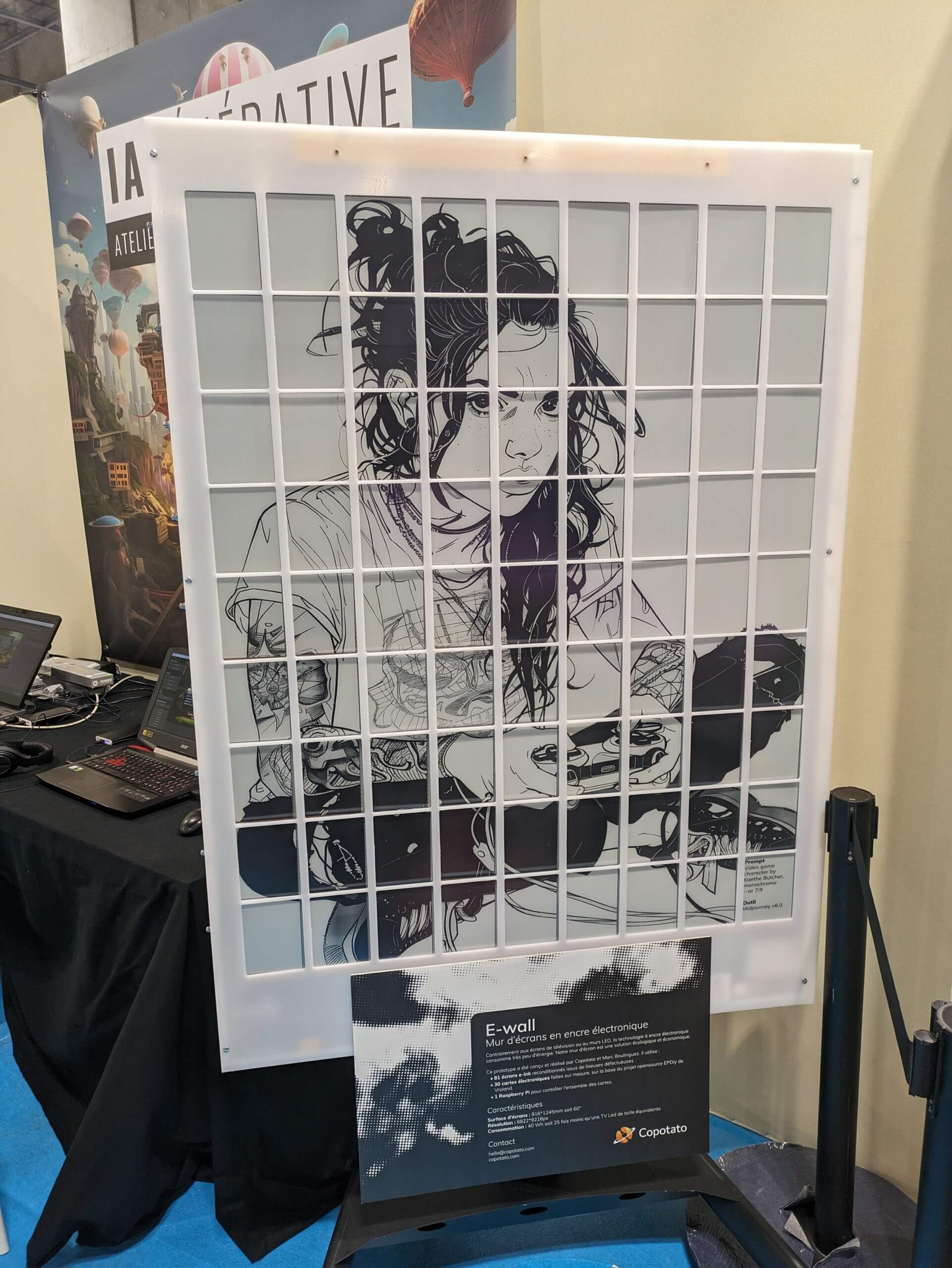
E-wall : experimental installation of AI-generated image displays, exhibited as part of a "video game creation and artificial intelligence" workshop for the Digital Games festival.
What's Copotato?
When we started the company, we didn't have any references in video games or gaming in the broader sense. Our first customers were those we'd worked with before the formation. I come from the web and Antoine from motion design. So we started by creating websites and communication videos.
We've kept a base in motion design and website design and development, but for the last few years our activity has been mainly devoted to video games. We develop serious games and board games , and offer video game creation workshops for young people.
We're a small company, so we produce as much as possible ourselves. I'm general manager, partner, project manager... I can sometimes do production work or develop serious games myself.
We're still in a stabilization phase. We haven't yet been able to take on permanent staff, but we're constantly calling on alumni to work with us on a freelance basis.
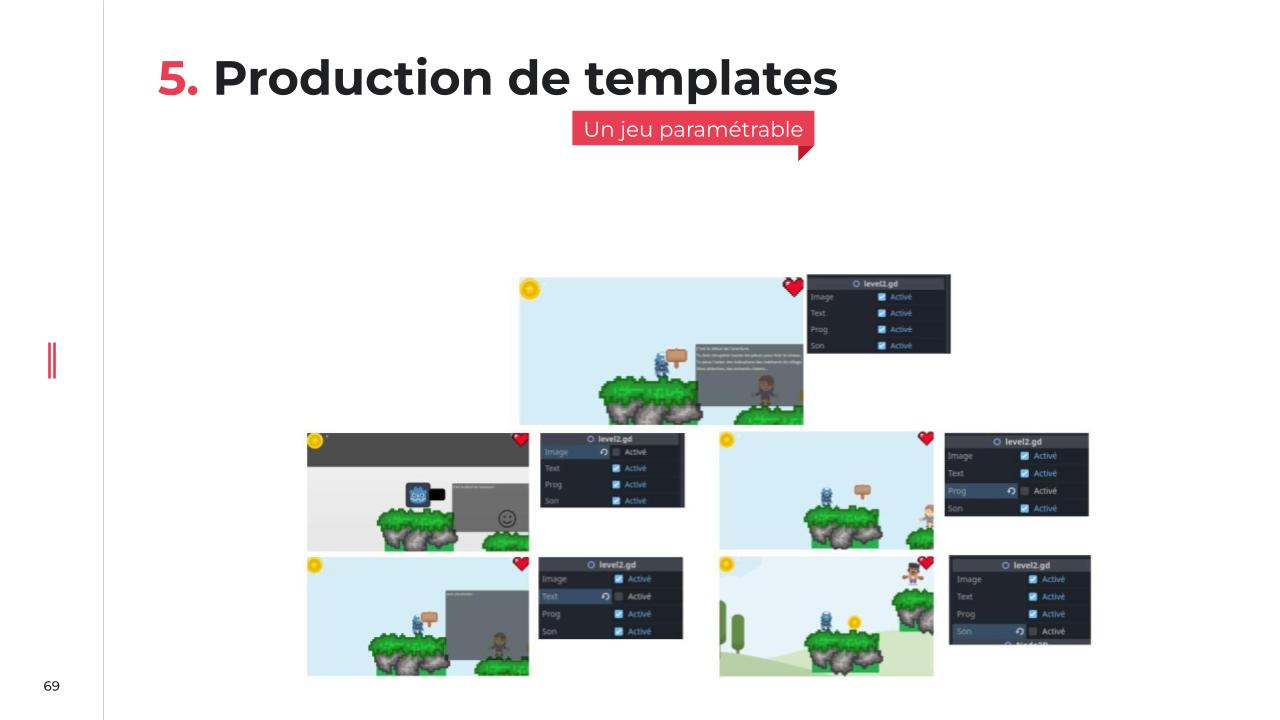
Support for Chloé Vigneau's thesis "Improving school learning through video game creation".
You're currently working on a thesis entitled "Improving school learning through the creation of video games". Can you tell us more about it?
In 2020, before setting up Copotato, I started giving in-class video game creation workshops with " Fusion Jeunesse ", an association that fights against school dropouts by offering teachers the chance to create video games in class with the help of mentors, video game professionals.
Creating video games is part of learning academic and cross-curricular skills. I ran these workshops for 4 years, simultaneously with my thesis.
I found the subject interesting from a pedagogical point of view, and as it was also very closely related to the issues I was interested in around video games, I thought there was something to be explored.
There's a lot of work being done in the United States on the creation of video games in the classroom, but the subject has been little developed in France. I saw an opportunity and focused my research onimproving skills through the creation of video games.
The creation of a game can concern all teachers and bring together a wide range of skills (to write a screenplay, you need to be good at French, to create a character you need artistic notions, you can't program without notions of math...). The workshops also provide an opportunity to work on cross-disciplinary skills such as collaboration, communication, project management...
The main difficulty with this type of workshop is setting it up. The teachers don't necessarily have the technical knowledge needed to manage the project. To address this problem, I proposed the development of video game templates, pre-coded at 60%, 80% or 90% depending on the length of the workshop, to be completed in class with the students.
How did you get interested in video games and serious games?
At the very start of my career, I worked for the French Building Federation. I was in charge of digital projects and was asked to design and manage a serious game project. I'm a gamer from the start and I really like video games, but I knew absolutely nothing about serious games.
This project was a revelation for me. I discovered how to design and manage a game. I wanted to delve deeper into the subject, but I didn't want to go back to long studies.
IDE training is perfect for professional transitions. It enables you to acquire knowledge in a new sector while building on your professional experience.
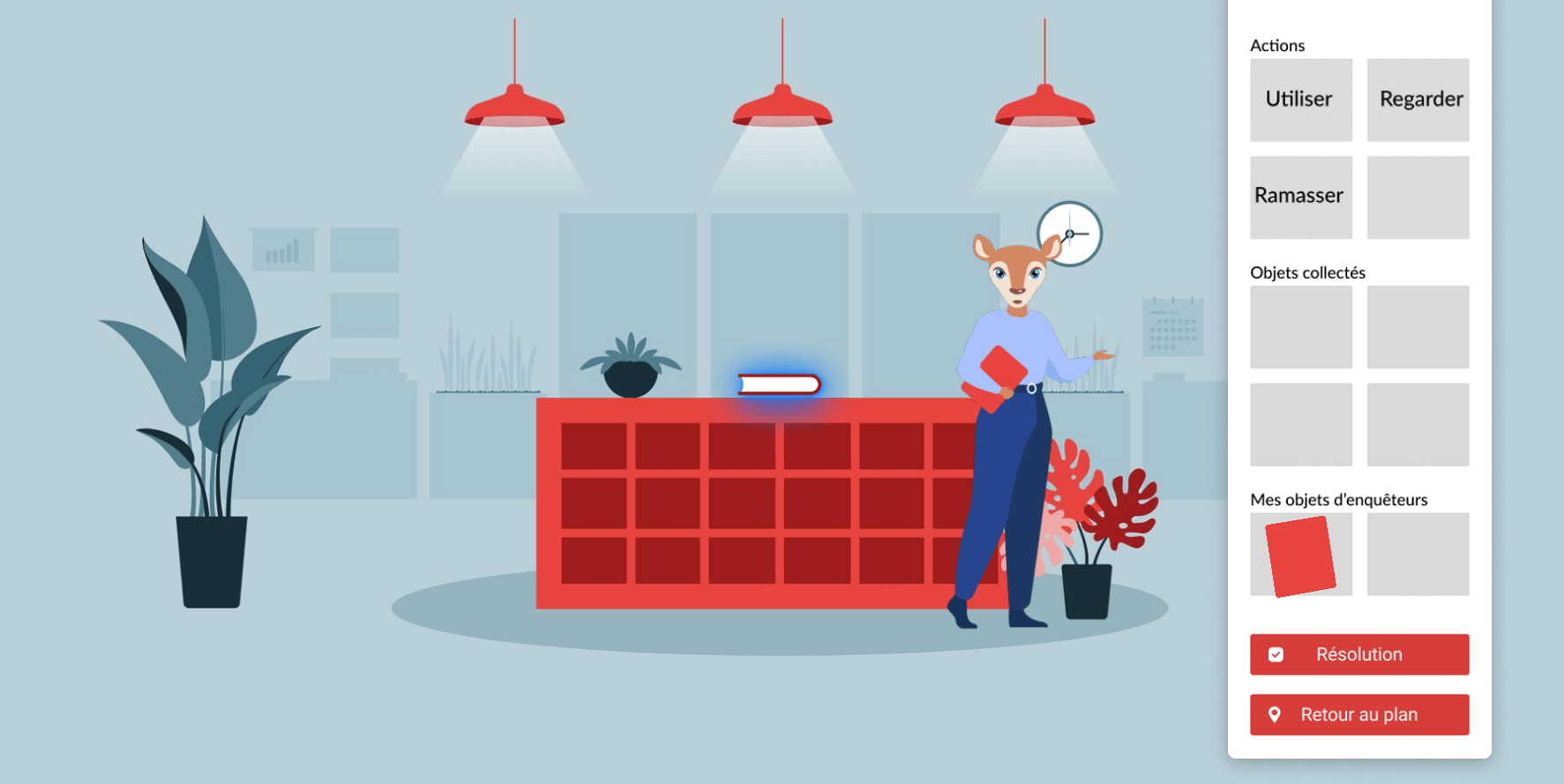
Serious game created for the Ile-de-France Regional Prefecture
You'll be defending your thesis in the very near future. How do you see the next stage of your career?
I don't want to devote myself entirely to research; I didn't do the thesis with that in mind.
Copotato is growing fast, and I'm determined that we should continue to develop it. We've had some great projects, we've worked for Notre-Dame de Paris, for the Opera, and we're starting to get some major accounts.
I'm still interested in research, and I'm going to try to remain an associate researcher at the CNAM, so that I can take part in seminars as a professional and possibly publish a few papers.
I'm also going to continue working on R&D projects to apply my thesis in a professional context.
Which project has had the greatest impact on you?
The Notre Dame de Paris project! This was a major tender for the creation of an educational kit in the form of a board game. The aim was to showcase the building trades and the processes involved in restoring the cathedral.
The project was very ambitious. It was the biggest budget behind the restoration of the building. It's the biggest tender we've won since the company was founded.
We were responsible for the conception, graphic design and prototyping of the briefcase. As only 3,000 cases were printed, an industrial service provider took over production.
The project enabled us to discover the world of board games, which is where we want to go from here. We even bought a semi-industrial machine to create game boards and cards.
It was a real challenge, with a lot of pressure. The briefcase brought us many other projects later on, and enabled us to create a bridge between the digital and the physical.
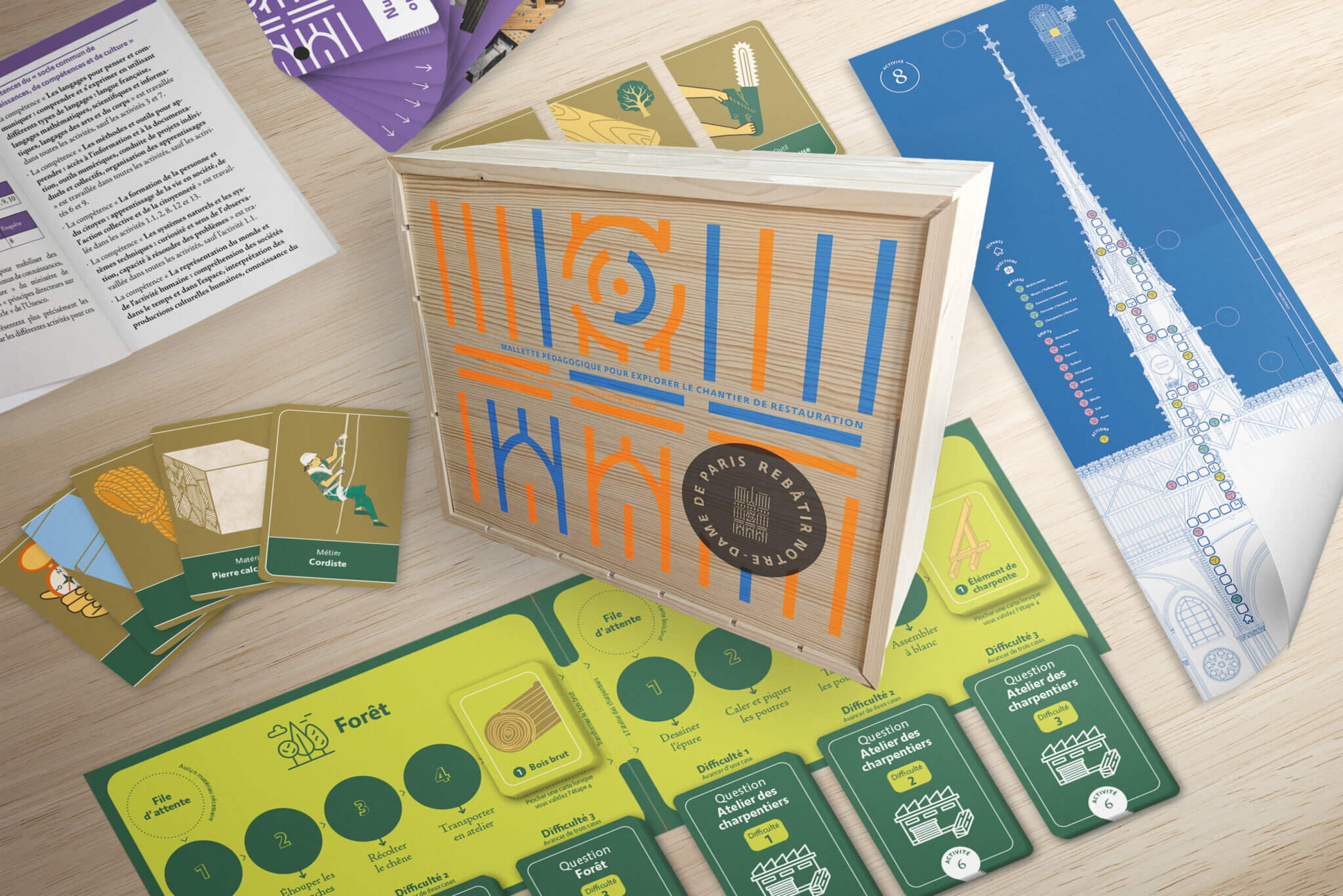
Educational kit on the restoration of Notre Dame Cathedral in Paris
Can you tell us a good memory of your studies at GOBELINS?
I worked very closely with a group of 3 boys from the class, including my associate Antoine, especially on the Game Jam. We spent 2 all-nighters creating the game.
Some people would call it a crunch today, but for me it was a realopportunity to get to know each other and work together. It was a great experience that launched our collaboration.
What advice would you give to a young graduate?
You mustn 't close doors to yourself by restricting yourself to video games. A lot of people take the course to make video games, but that's not the primary vocation of the IDE master's program. Myself, I came here for video games and I discovered connected objects and a whole other world just as exciting.
You came for video games, but you' ve acquired skills. Your path may be to set up your own company, write a thesis or work in a museum with interactive installations. The next logical step is not necessarily to go and work for a big video game studio.
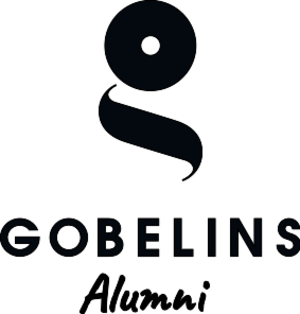











No comment
Log in to post comment. Log in.